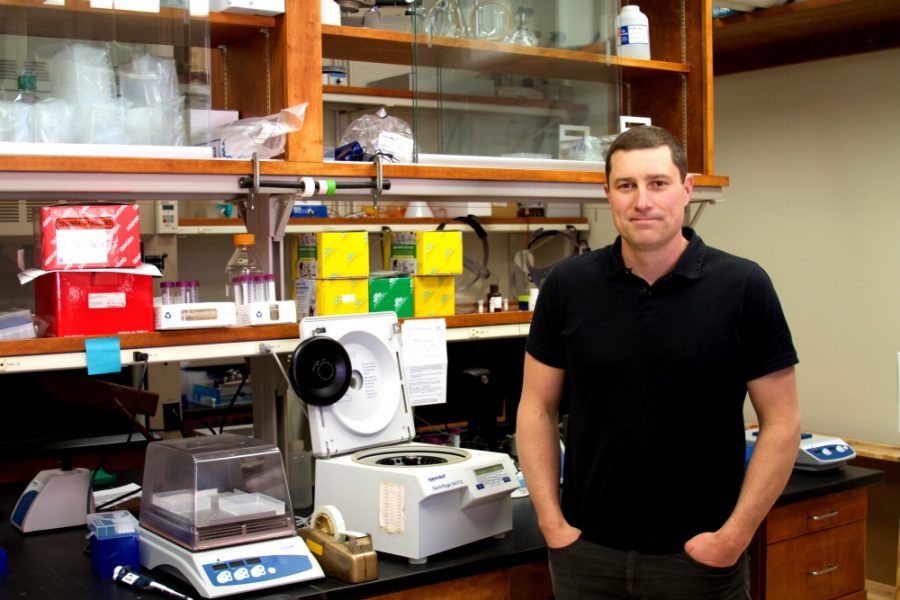Michael Worobey, head of the UA Ecology and Evolutionary Biology Department, was awarded the Louise Foucar Marshall Science Research Professorship at the beginning of the year for his outstanding research on the origins of the HIV and its path to North America, as well as his work on the deadly 1918 Spanish influenza pandemic.
HIV is a retrovirus that attacks the immune system and decreases its ability to shield the host from disease and infection. It remains a top priority in the U.S. and throughout the world with approximately 50,000 new infections in the U.S. each year, according to the Centers for Disease Control and Prevention.
Worobey helped develop a new methodology that combines his knowledge on infectious diseases and evolutionary biology to create an evolutionary tree based on gene sequences. An evolutionary tree is a visual depiction of the relationships between organisms, including their common ancestors, descendants and evolutionary history. The evolutionary trees were essential to Worobey’s research on both of the viruses.
“[These trees are] a major tool in fighting infectious diseases around the world,” Worobey said.
Worobey’s tree methodology focused on the genetic recombination of different virus strains in a human host.
A recombination of the virus occurs when a human host is infected with two or more strains of the HIV. This can happen because of weakened immunity from the original infection, creating a mix-and-match genetic outcome, according to Worobey. The tree methodology, when done correctly, can detect this recombination and contribute to vaccine development.
Worobey’s work suggests that the HIV began to circulate in humans between 1910 and 1920, which is earlier than other estimates. It then diversified on the island and one of the strains entered the U.S. This research also demonstrates a “strong signal” that Haiti was the stepping stone for the subtype of HIV that dominates in North America.
Even though the virus holds a poor human-to-human transmission rate, Worobey said that the HIV virus has a reputation of being an “invincible foe.” It uses a similar pattern of exploitation in high-risk communities through sexual encounters and injection drug use to spread across the world.
Eradication possibilities shown by tracing back to past events motivate Worobey to continue his research on the HIV.
Influenza is another major research topic for Worobey. The 1918 Spanish influenza pandemic killed about 50 million people worldwide in a time period equal to a college student’s fall semester, according to Worobey. In a matter of a single year, the average life expectancy of people in the U.S. dropped by 12 years. Most people who died were between the ages of 20 and 40 years, or in the “prime of life,” said Worobey.
Based on Worobey’s evolutionary tree of this flu virus, people younger than 20 and older than 80 were exposed to a similar virus during their youth. This means that their bodies had an immunity to this strain of flu virus, protecting them from the pandemic.
“[There was just] a wedge of people with bad luck,” said Worobey.
This information is important in developing present-day flu vaccines. The flu vaccine now is a mixture of four vaccines that protect against different strains.
The flu virus and its complications such as pneumonia kill roughly 30,000 people per year in the U.S., according to Worobey, making it a major public health issue.
The Louise Foucar Marshall Science Research Professorship granted by the Marshall Foundation, a non-profit organization supporting education, health and youth projects in the Tucson area, will allow Worobey to explore new research ideas and expand his previous research.
“It is an honor to have other people at the university bestow an expression of appreciation and recognition,” said Worobey. “[It is also] an expression by the Marshall Foundation in support for the mission of the UA.”
Worobey and his research on these two major human health problems show promise for future vaccinations and other exciting developments in evolutionary biology.
Follow the Daily Wildcat on Twitter.









